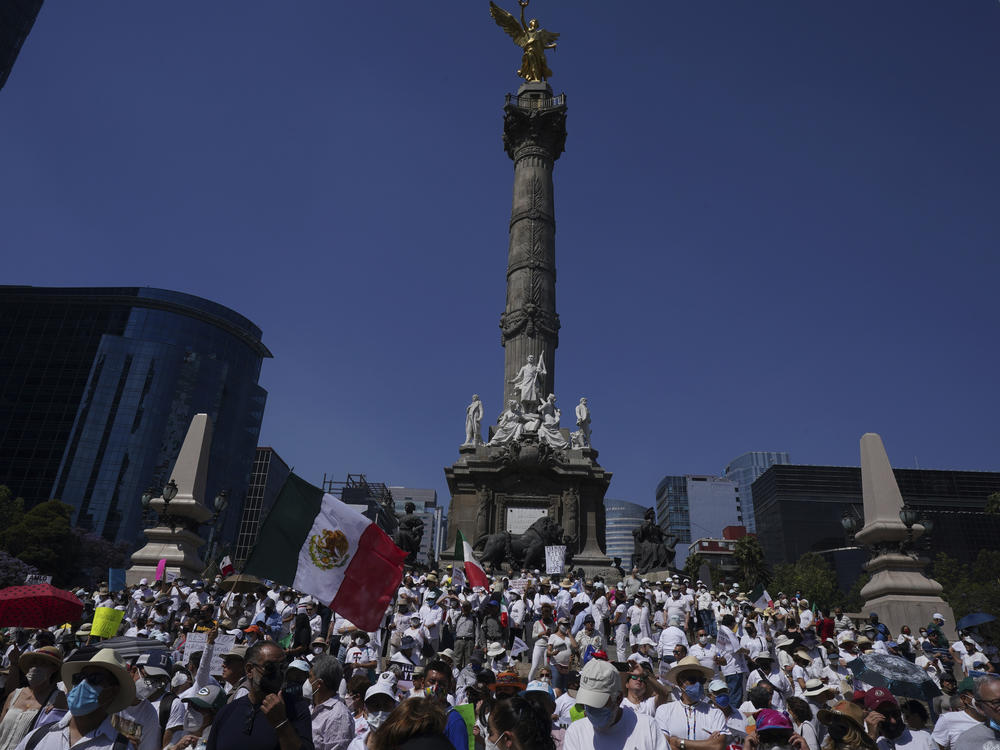Section Branding
Header Content
Mexicans vote on whether president stays or goes
Primary Content
MEXICO CITY — Mexicans vote Sunday on whether their popular president should end his six-year term barely midway through or continue to the end.
Strangely, President Andrés Manuel López Obrador was the one who pushed for the first-ever referendum of its kind in Mexico.
It was considered a safe bet. The referendum is only binding if at least 40% of the country's electorate votes — something experts believe unlikely — and López Obrador has maintained approval ratings around 60%.
With that in mind critics have decried the exercise as a waste of money — almost $80 million — and just a way for López Obrador to rally his base midway through his time in office. For someone known as an eternal campaigner the expected reaffirmation of support makes sense, but for a president outspoken about austerity it raised questions.
Some in the opposition have called for voters to boycott. López Obrador's Morena party has been active in encouraging the president's base to vote. The president has faced criticism that government officials and resources have promoted the referendum.
How many voters will turn out has been the overriding question.
Patricio Morales, an analyst at Monterrey Institute of Technology and Higher Education, said the lack of awareness about the referendum and potential disinterest among voters could weigh on turnout.
He noted that only 7% of voters participated in another referendum last year asking whether former presidents should be prosecuted.
The referendum fueled a feud between López Obrador and Mexico's respected elections authority. Lawmakers from his party cut the National Electoral Institute's budget and the institute said it didn't have the money to pull off the referendum originally estimated to cost estimate more than $191 million. It refused to move ahead until the Supreme Court ruled that it must. Adjustments lowered expected the cost to $78.2 million.
Copyright 2022 NPR. To see more, visit https://www.npr.org.

